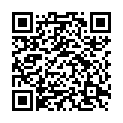|
|
|
| Module code: E915 |
|
|
2V+2PA (4 hours per week) |
|
5 |
| Semester: 9 |
| Mandatory course: yes |
Language of instruction:
German |
Assessment:
Presentation, project work, oral examination
[updated 12.03.2010]
|
E915 (P213-0176) Electrical Engineering, Master, ASPO 01.10.2005
, semester 9, mandatory course
|
60 class hours (= 45 clock hours) over a 15-week period.
The total student study time is 150 hours (equivalent to 5 ECTS credits).
There are therefore 105 hours available for class preparation and follow-up work and exam preparation.
|
Recommended prerequisites (modules):
None.
|
Recommended as prerequisite for:
|
Module coordinator:
Prof. Dr. Martin Buchholz |
Lecturer:
Prof. Dr. Martin Buchholz
Prof. Dr. Albrecht Kunz
[updated 12.03.2010]
|
Learning outcomes:
After successfully completing this module students will understand the complex algorithms used in communications engineering. Once acquainted with the boundary conditions for hardware/software partitioning, students will be in a position to optimize digital systems. They will be able to estimate the effort and complexity involved in implementing such systems and will be able to select appropriate target technology (digital signal processors, microcontrollers or hardware-based solutions).
Students will have the skills needed to implement the systems using DSPs or FPGAs and they will be familiar with the most common EDA tools.
Students will also be able to use instrumentation to analyse quantitatively the algorithms and to verify their successful implementation.
[updated 12.03.2010]
|
Module content:
1.Complex digital algorithms in communications engineering
2.Digital modulators and demodulators
3.Source coding and decoding, channel coding and decoding
4.Digital audio and video signal processing
5.Error resilience techniques
6.Synchronisation methods
7.Software-defined radio architectures
8.Hardware/software partitioning
9.Simulation with electronic design automation (EDA) tools such as Simulink, SPW
(Signal Processor Workstation) and ML Designer; co-simulation
10.Fundamentals of digital signal processors (DSP)
11.Introduction to programmable hardware (FPGA)
12.Computer-aided real-time realization using digital signal processors (DSPs)
and programmable hardware (FPGAs)
13.Synthesis, place and route, back annotation and debugging
14.Digital measurement technology
[updated 12.03.2010]
|
Teaching methods/Media:
Overhead transparencies, video projector, EDA simulation tools, lab work
[updated 12.03.2010]
|
Recommended or required reading:
Oppenheim, A. V.: Schafer, R. W.: Zeitdiskrete Signalverarbeitung, Oldenbourg Verlag, 1999
Proakis, J.G.: Digital Communications, Mc Graw Hill, 2000
Stearns, S.D., Hush D.R.: Digitale Vararbeitung analoger Signale, Oldenbourg, 1999
Von Grünigen, D. Ch.: Digitale Signalverarbeitung, Carl-Hanser Verlag, 2004
Kammeyer, K.-D. / Kroschel K.: Digitale Signalverarbeitung – Filterung und Spektralanalyse, Teubner
Haykin, S.: Digital Communication Systems, John Wiley and Sons, 200
Abut, H.; Hansen, J.; Takeda, K.: DSP for In-Vehicle and Mobile Systems, Springer, 2005
Bateman, A.; Paterson-Stephens, I.: The DSP Handbook, Algorithms, Applications and Design Techniques, Prentice Hall, 2002
Wolf, W.: FPGA Based System Design, Prentice Hall, 2004
[updated 12.03.2010]
|


